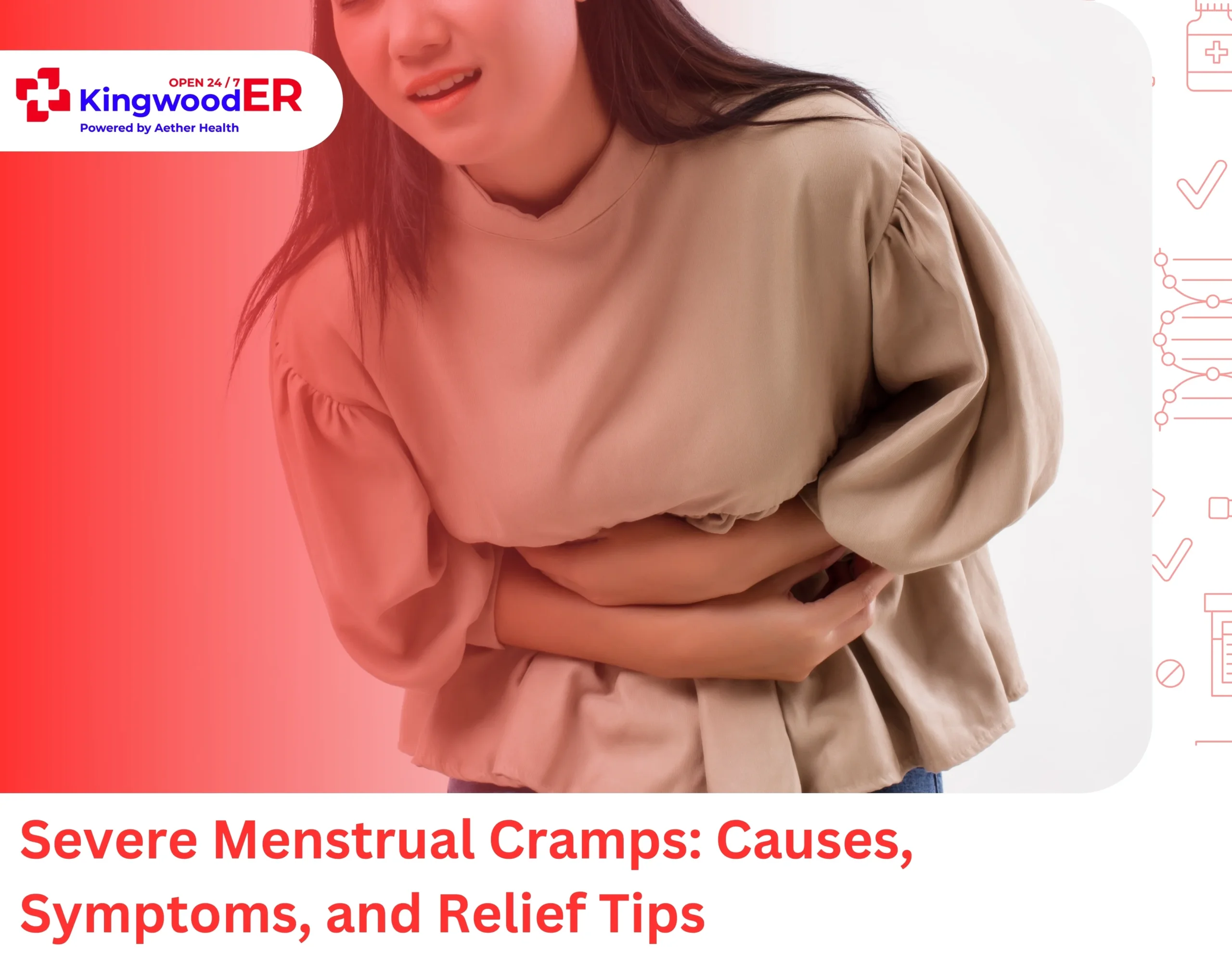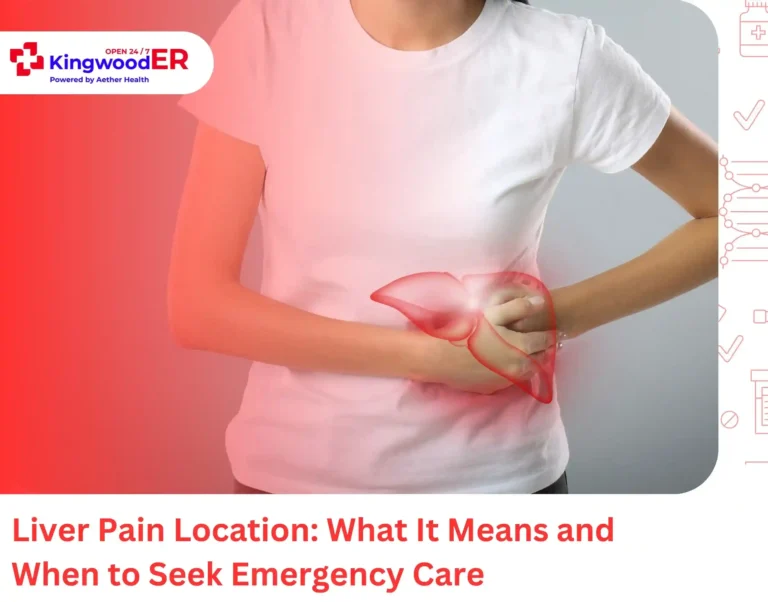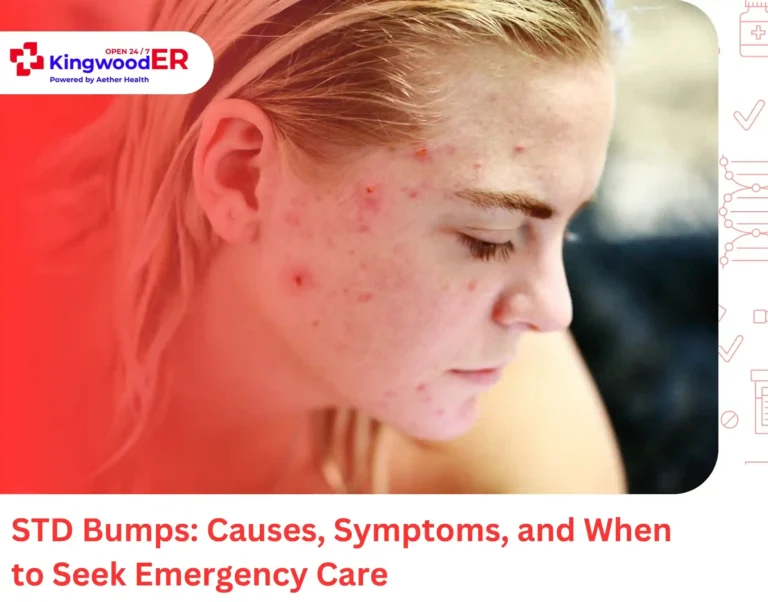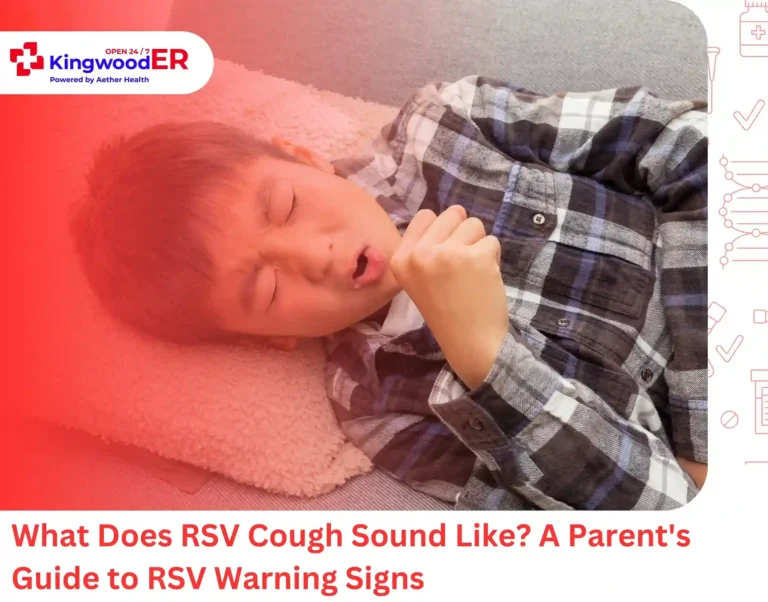Do you know that severe menstrual cramps can mess with your fertility? While the cramps themselves don’t directly affect fertility, they can be a symptom of underlying conditions that do.
Cramps that knock you out every month, make you cancel plans, or keep you curled up in bed all day are not “normal periods”. They could be a sign of something deeper, like endometriosis, fibroids, or hormonal imbalances. And the earlier you know, the easier it is to treat.
Let’s talk about the causes of severe menstrual cramps, how to identify the symptoms, and how to find lasting relief. Knowing this information is the first step toward taking control of your menstrual health.
Understanding Severe Menstrual Cramps

While many people experience cramping during their menstrual cycle, severe menstrual cramps, medically known as dysmenorrhea, refers to cramping that can be severe enough to interfere with daily activities.
This pain usually starts a day or two before menstruation starts and can continue for several days into the cycle. These cramps can be so intense that you need pain medicine, miss work or school, and feel other symptoms that make it hard to function. Understanding the types and causes of severe menstrual cramps helps determine appropriate treatment options
Severe Menstrual Cramps Types
Doctors divide menstrual cramps into two main types: primary and secondary. Knowing the difference helps guide treatment and long-term care.
- Primary dysmenorrhea: Cramps that happen on their own, without another health problem. Primary dysmenorrhea is the overproduction of prostaglandins. It is the most common form of severe menstrual cramps, typically beginning within a few years of a woman’s first period.
- Secondary dysmenorrhea: Menstrual cramps caused by an underlying condition in the reproductive organs like endometriosis or fibroids. It usually appears later in life, often after age 25, and tends to get worse over time. It may be accompanied by other symptoms like heavy bleeding or pain during intercourse.
7 Common Causes of Severe Menstrual Cramps
Several factors can contribute to the development of severe menstrual cramps. The most common causes of severe menstrual cramps include:
1. Elevated prostaglandin levels
High levels of prostaglandins (hormone-like chemicals) stimulate strong uterine contractions. These intense contractions reduce blood flow and oxygen supply to the uterus, which increases the sensation of pain during menstruation.
2. Endometriosis
Tissue similar to the lining of the uterus grows outside of it, often on the ovaries, fallopian tubes, or pelvic wall. This tissue still bleeds during your period but it has nowhere to go, causing inflammation, scar tissue, and severe pelvic pain that can persist beyond the menstrual period.
3. Uterine fibroids
Non-cancerous growths that develop in or on the uterus. These fibroids can cause cramping by exerting pressure on the uterus and disrupting its normal contraction patterns. Larger or more numerous fibroids often lead to more intense pain and heavier bleeding.
4. Adenomyosis
Occurs when the uterine lining grows into the muscular wall of the uterus. This causes the uterus to become enlarged and tender, resulting in progressively painful and heavy menstrual periods, often in people over 30.
5. Pelvic inflammatory disease (PID)
An infection of the female reproductive organs that is often caused by sexually transmitted infections. PID leads to inflammation, scarring, and chronic pelvic pain, which can worsen during menstruation and contribute to severe abdominal pain.
6. Hormonal Imbalances
Fluctuations or disruptions in hormone levels, especially estrogen and progesterone can affect the uterine lining and prostaglandin production, leading to more painful menstrual cramps.
7. Abnormalities in the Reproductive System
Congenital or acquired abnormalities, such as a tilted uterus, uterine septum, or cervical stenosis, can interfere with menstrual flow and uterine contractions, contributing to severe cramping.
Recognizing Severe Menstrual Cramps Symptoms
Severe menstrual cramps can present with a variety of symptoms that go beyond routine period discomfort. Common signs include:
- Intense lower abdominal pain that disrupts daily activities
- Cramping pain radiating to the lower back or thighs
- Nausea or vomiting during menstruation
- Headaches or dizziness
- Fatigue or physical weakness due to pain or blood loss
- Heavy menstrual bleeding with large clots
- Pain that doesn’t improve with over-the-counter medications
- Pelvic pain occurs outside of menstrual periods
When to Seek Medical Help for Menstrual Cramps
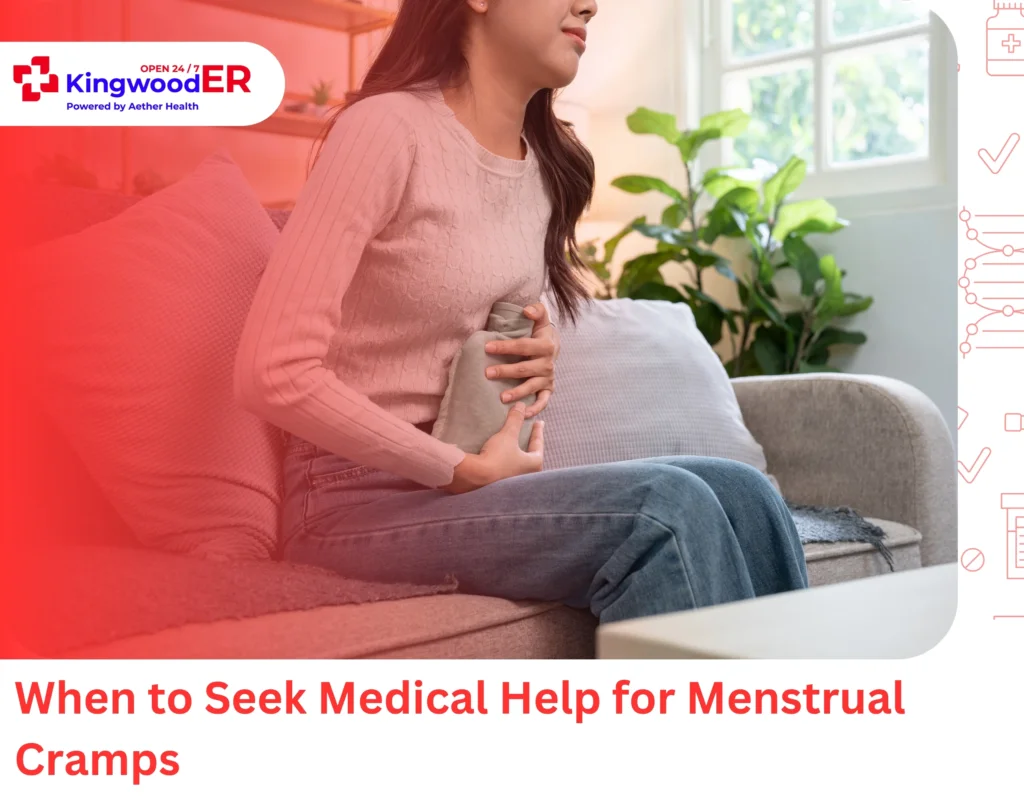
Several red flags indicate the need for immediate medical evaluation for severe menstrual cramps:
- Pain that suddenly becomes much worse or changes character may signal developing complications or new conditions.
- Severe cramping accompanied by fever, unusual vaginal discharge, or bleeding between periods may indicate infection or other serious conditions.
- Pain that doesn’t respond to over-the-counter medications or interferes with work, school, or relationships.
- Women trying to conceive, as conditions like endometriosis or fibroids can affect fertility. Identifying the causes of severe menstrual cramps early through medical evaluation may improve reproductive outcomes.
Managing Severe Menstrual Cramps
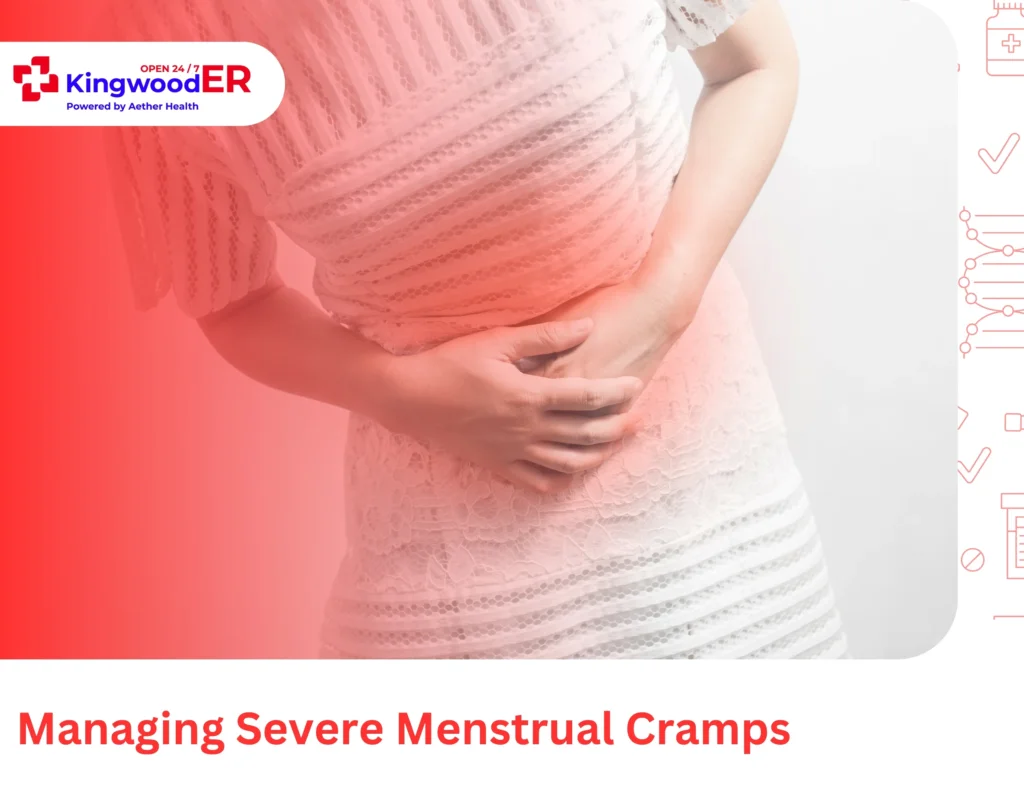
While you can’t always stop cramps entirely, addressing the underlying causes of severe menstrual cramps through targeted treatment can significantly improve symptoms.
- Nonsteroidal anti-inflammatory drugs (NSAIDs): Medications like ibuprofen or naproxen reduce prostaglandin production. These are most effective when taken before cramps become severe.
- Hormonal birth control methods: Options such as pills, patches, rings, or hormonal IUDs suppress ovulation and lower prostaglandin levels, easing cramping in cases of primary dysmenorrhea.
- Heat therapy: Using warm baths, or heat patches on the abdomen or lower back helps relax uterine muscles and improve blood flow, reducing pain.
- Regular exercise: Aerobic activities boost endorphin levels, enhance circulation, and help regulate hormones, all of which contribute to reduced cramp severity.
Note: Consult your healthcare provider if severe cramps persist despite these management strategies or significantly impact your daily life.
Final Thoughts
Understanding the causes of severe menstrual cramps is the first step toward effective treatment. Don’t let this manageable condition steal days from your life every single month.
No matter how bad it feels now, there are solutions out there. With the on-site lab and imaging facility at Kingwood ER, we quickly get to the root of your cramps and start personalized treatment. The right care can get you back to living a normal life again.
FAQs
1. How to deal with extremely painful period cramps?
To manage severe menstrual cramps, apply heat to your abdomen, try gentle exercise, stay hydrated, and consider magnesium-rich foods. If needed, use NSAIDs like ibuprofen. For persistent pain, consult a gynecologist.
2. Why aren’t painkillers working for my period?
If OTC painkillers aren’t helping, your severe menstrual cramps may be linked to underlying causes of severe menstrual cramps like endometriosis or fibroids.. It’s also possible you’re not taking them early enough. Speak with a healthcare provider for tailored options.
3. Why does my period pain feel like labor?
Period pain can sometimes mimic labor because both involve strong uterine contractions. High prostaglandin levels or underlying conditions like adenomyosis may cause this intensity.
4. Why are my period cramps so bad that I can’t walk?
If severe menstrual cramps stop you from walking, it could signal a gynecological issue like endometriosis. Such intense pain is not normal and warrants a medical evaluation.
5. Are period cramps worse when dehydrated?
Yes, dehydration can worsen severe menstrual cramps. Water helps muscles, including the uterus, function smoothly. Staying hydrated may reduce pain severity.
6. How to sleep with period pain?
To sleep better with period pain, try sleeping in the fetal position, use a heating pad, or take a warm bath before bed. A light snack and pain relievers can also ease discomfort. Always consult your doctor before taking any medication.

